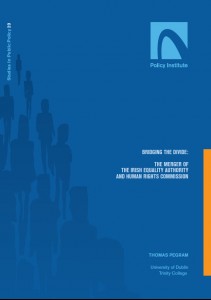I participated in a webinar today hosted by the World Bank in association with the International Ombudsman Institute. The focus was on on the role of the ombudsman in advancing Open Government based on my research on ombudsmen, principally in Latin America – but applicable to other democratic settings. In a nutshell: ombudsmen can be Information-Brokers, Advocates, Amplifiers and Consensus-Builders for Open Government. The powerpoint is available here.
We often associate the ombudsman with Sweden and advanced democracies, they can now be found in very diverse political systems, from South Africa to Indonesia to Peru and Poland. It is important not to underestimate the potential challenges which open government advocates encounter in weakly institutionalized or are sometimes referred to as new democracies. These ombudsmen operate in settings where formal rules – particularly at the local sub-national level – are often contested, changed, and routinely violated. In turn, in political systems which have limited experience of liberal democracy, public officials may view election to political office more as implying responsibility, than accountability.
Continue reading The role of Ombudsmen in advancing Open Government





